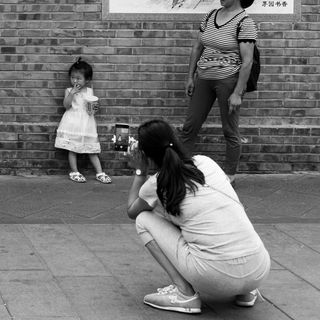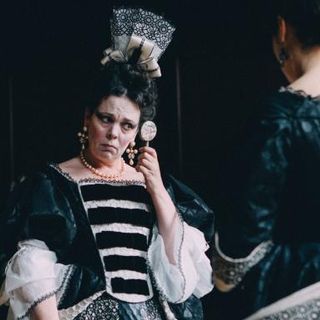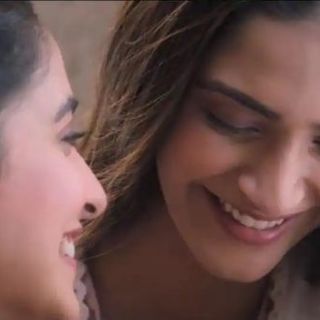
Feminist TV Soaps Are Finally Finding a Foothold With Mass Audience
But channel executives largely favor blockbuster regressive shows.

The quintessential Indian television soap, rife with strictly-adhered-to gender roles and, often, regressive attitudes toward women, has long permeated the households of unassuming families, post dinner.
While attempts to revisit strong and independent female leads in TV soaps have been frequent, few have reached a high enough target rating point (TRP) to encourage more prosocial television programming. A handful of feminist TV soaps, however, are slowly building audience numbers and heralding a new (and more optimistic) dusk.
Patiala Babes, for example, is a story of a self-sufficient mother-daughter duo that captures the nuance of feminist characters raised in patriarchal societies. The show, which first aired in 2018, features the fearless daughter, Mini, who doesn’t hesitate to beat up lecherous men in her neighborhood — the scenes are replete with action-packed dhishum dhishum noises — and her subdued mother, Babita, a gritty and determined woman who has a hard time overcoming self-doubt informed by years of being in an oppressive marriage.
Related on The Swaddle:
Kalpana Lajmi Set An Example Bollywood is Still Struggling to Follow
These female characters are not tokens the screenwriter overlords thought up to escape the ire of social justice warriors on the internet, or emblematic of the writers’ own performative progressivism. Mini and Babita are complex characters, who experience fear and doubt, question their choices, rely on each other for support, and are relentlessly trying to figure out how to be independent in a society that hasn’t been designed to welcome women with that trait. Most commendable of all, the show boasts unapologetic women who refuse to shame each other and who stand up for their rights, a concept foreign to most television dramas.
The task of writing progressive television in an industry where regressive gender tropes abound, however, is arduous.
“It is the audience who finally decides what they want to watch,” said Kalpana Chandra, writer for Zee TV shows such as Ardhangini, Bani-Ishq Da Kalma and Maryada: Lekin Kab Tak. Chandra added that progressive shows she has worked on have been repeatedly canned because of low TRP. “The channel is only going to pay me for what works. We are forced to write regressive stuff, and I don’t know how to change it.”
More writers are now flocking to the digital world due to this dilemma, Chandra said. Frustrated conversations with other writers are a common occurrence behind the small screen, she added, but there is a sinking realization every time, that this is a business. “The channel is paid for the TRP they get, and we get paid for what gets approved. We are dying to tell different stories, but whatever sells, sells.”
Her advice: If the audience doesn’t want to entertain regressive content, then they should stop watching those shows. Let the TRP fall. That’s when writers will start experimenting to show real women.
While the TRP remains strong for masala television such as Naagin, which attracts approximately 12 million viewers per episode, figures show that progressive television increasingly owns a place in Indian homes. On Sony Entertainment Television, Patiala Babes has an audience viewership of 2.8 million per episode, according to data provided by the Broadcast Audience Research Council. Other shows on television also boast strong female leads, such as Ladies Special, which garners an average viewership of 2.4 million per episode, and Nimki Mukhiya on Star Bharat, which has 8.8 million viewer impressions.
The advent of more channels has fragmented the television market and flooded homes with new content, creating space for shows like Patiala Babes to find their audiences, according to Rajita Sharma, who co-created and co-produces the show under Katha Kottage Production, which she runs with partner Vivek Budakoti. Television viewers don’t need to watch what is served up to them anymore; they can now make choices.
The story of Patiala Babes occupied Sharma’s brain, and computer, for quite a while before it started inhabiting millions of Indians’ television screens. “TV channels were not willing to place their bets on a story of a mother [and] daughter who celebrate a divorce,” she said. When she went to Sony, however, the only instruction she received was: “Keep the show as real as possible and [don’t] get stuck into any artificial gimmicks for sake of numbers.”
Calling it a “pleasant and surprising” turn of events, Sharma said, “It gave me — the maker — wings to fly.”
Sharma’s show flew into the home of TV viewer Harleen Vij, 30, of Nagpur, who lauds Patiala Babes for exerting a responsible influence on society and urges other channels and screenwriters to follow suit.
“Earlier, no matter how bad the husband is or how broken the marriage is, the woman was always advised to make the marriage work, no matter how bad the conditions and the circumstances,” Vij said, alluding to a recent Patiala Babes episode where Babita divorces her cheating husband. “For a change, now, even my family said that [the husband] doesn’t deserve Babita and that she should be free.”
Shows like Ladies Special and Patiala Babes depict women who are taking the initiative, helping each other without needing men, which is “very refreshing,” said 22-year-old Hemlata Ninoriya. “Indian television is going into the homes of billions of people. If anybody watches something five days a week, it will definitely impact you.”
A writer’s thought has the power to stir emotions and change perspectives, said Patiala Babes‘ Sharma. Similarly, changes happening in society have the ability to shape writers’ perspectives and thus, stories, she said. Determining the type of shows that get made is a “mutually dependent” phenomenon, Sharma added.
“Are you the mirror image, or the mirror image is you? It’s a little bit of both.”
Rajvi Desai is The Swaddle's Culture Editor. After graduating from NYU as a Journalism and Politics major, she covered breaking news and politics in New York City, and dabbled in design and entertainment journalism. Back in the homeland, she's interested in tackling beauty, sports, politics and human rights in her gender-focused writing, while also co-managing The Swaddle Team's podcast, Respectfully Disagree.
Related


The Buzz Cut: ‘The Favourite’ Isn’t the First to Fixate on Queen Anne’s Body
